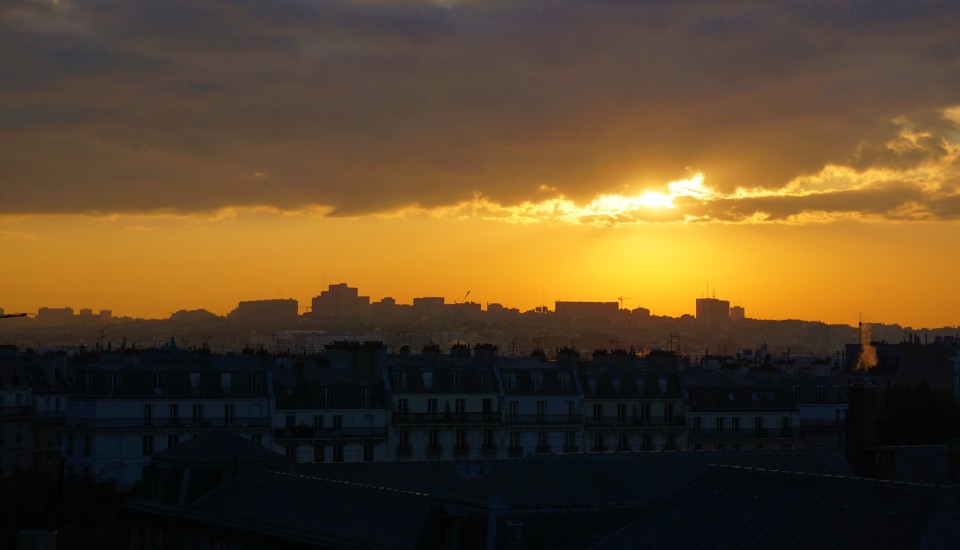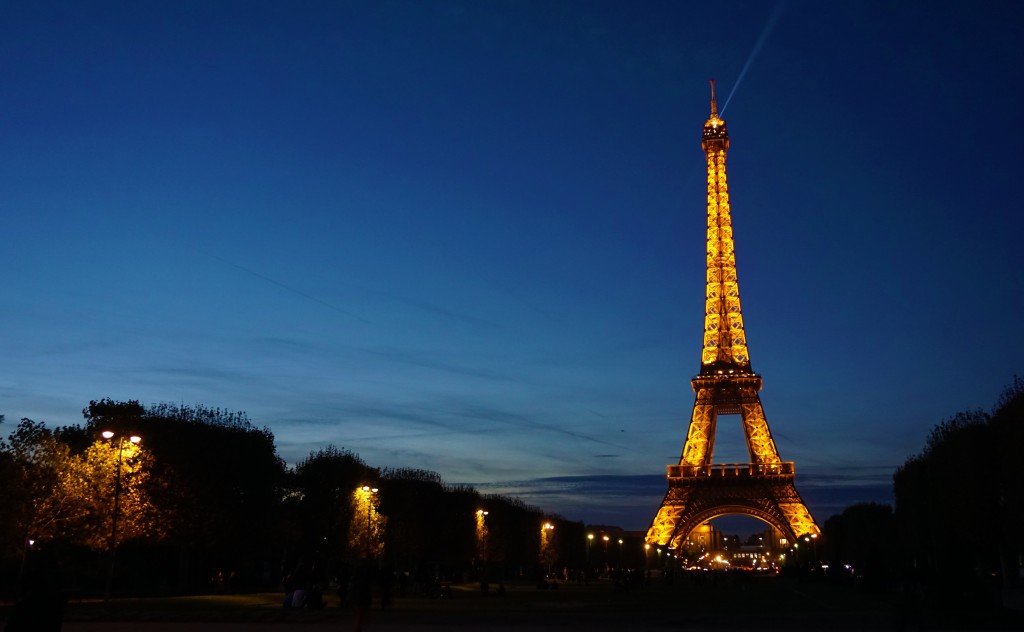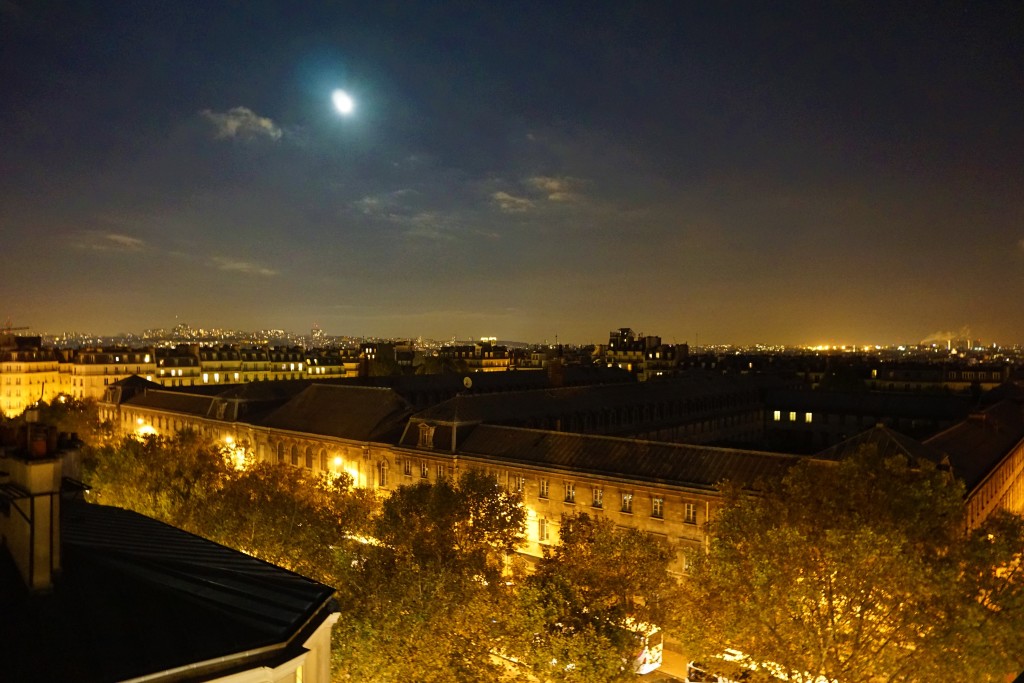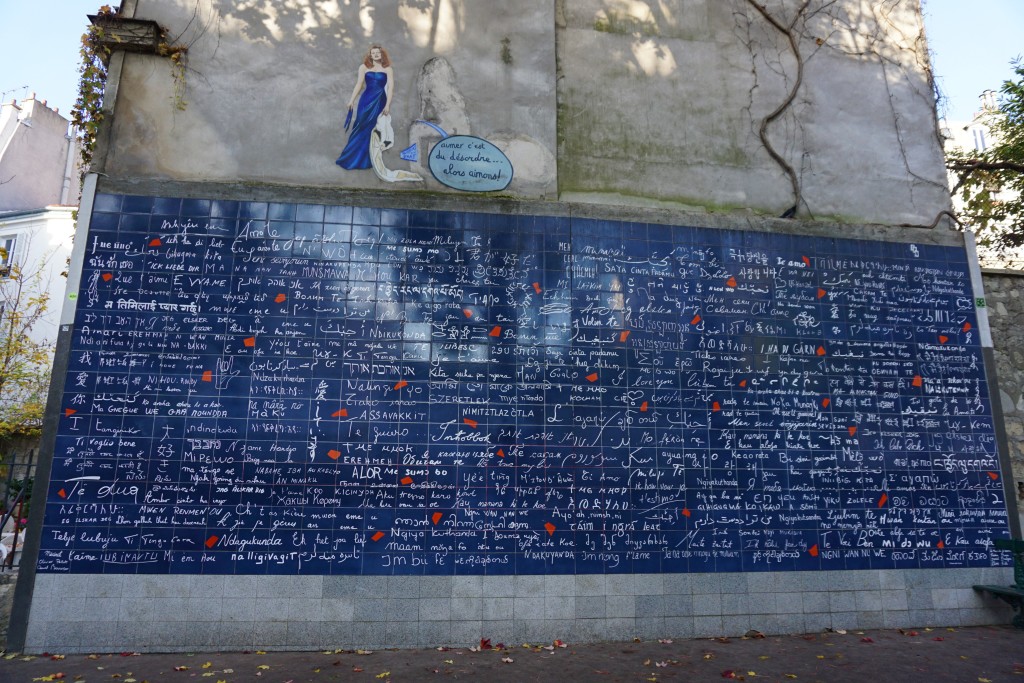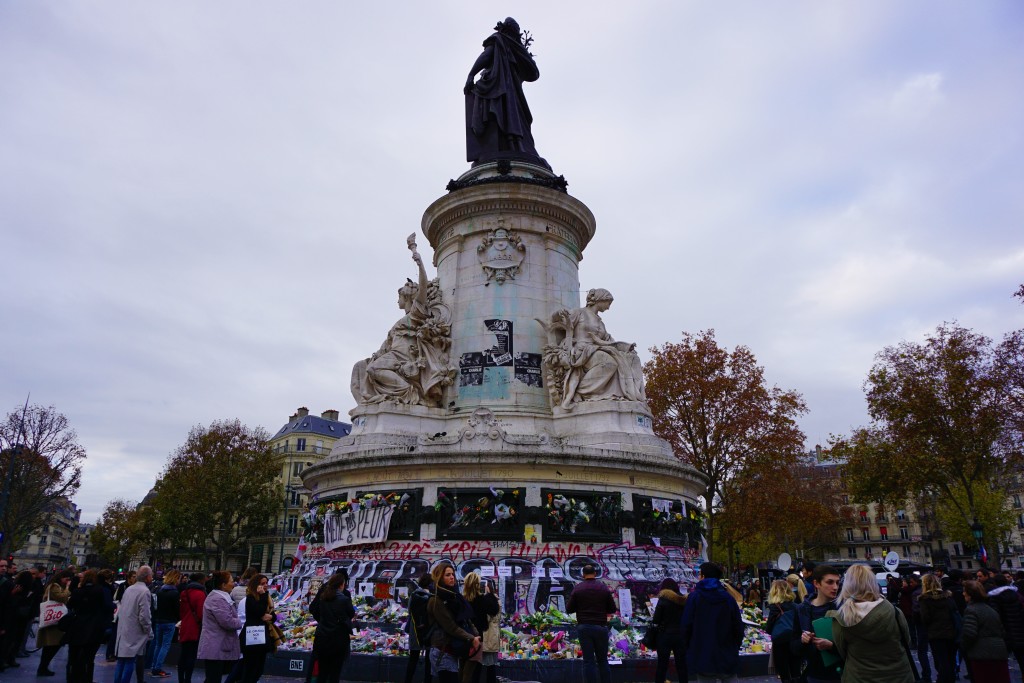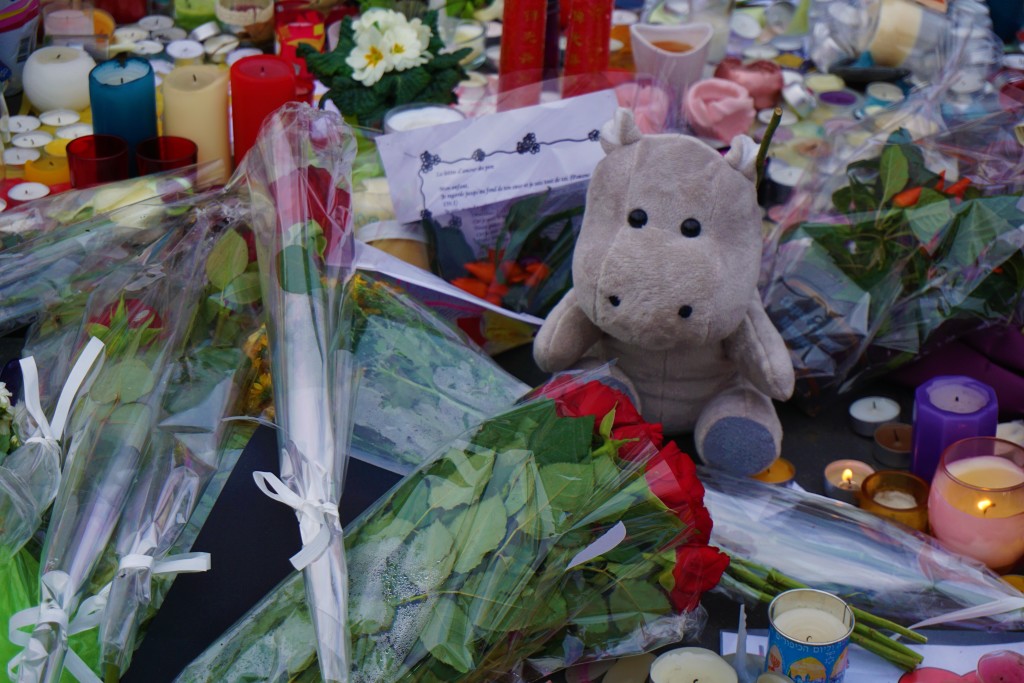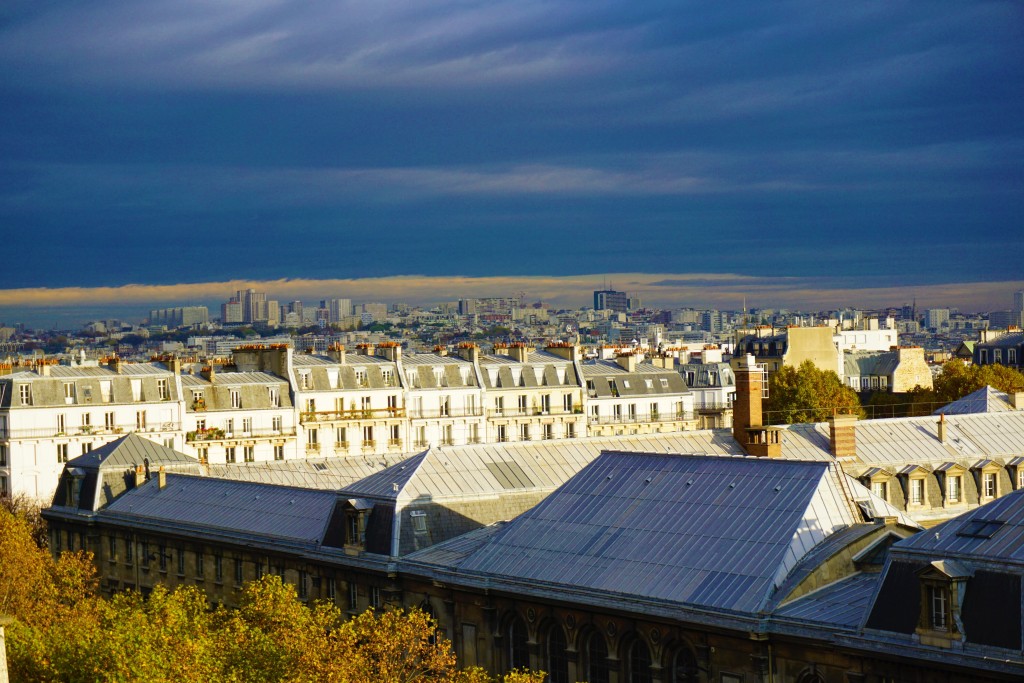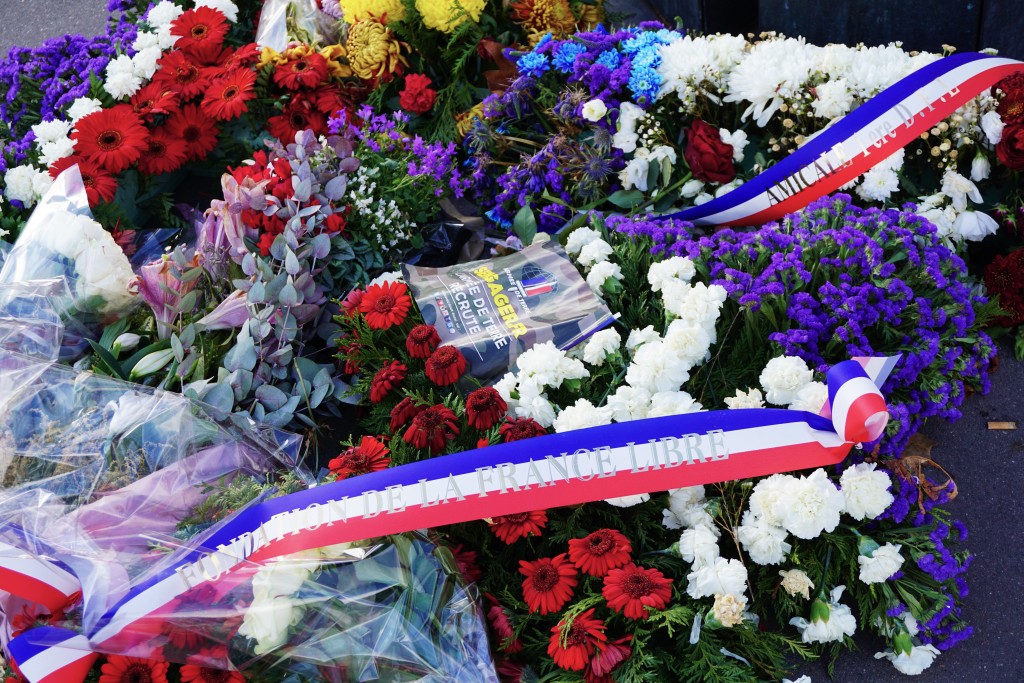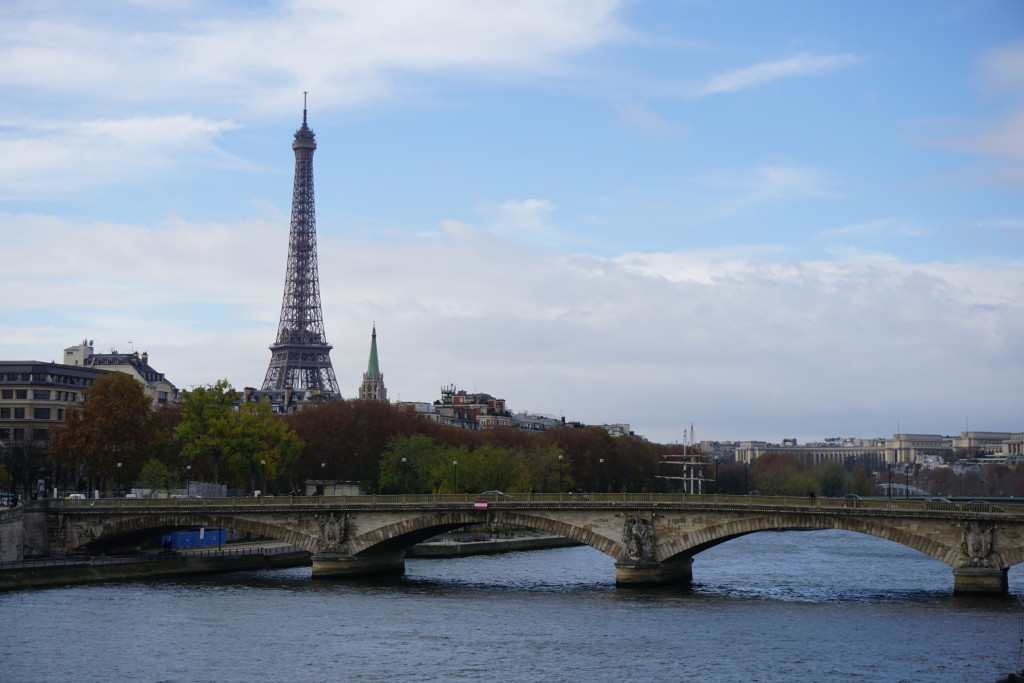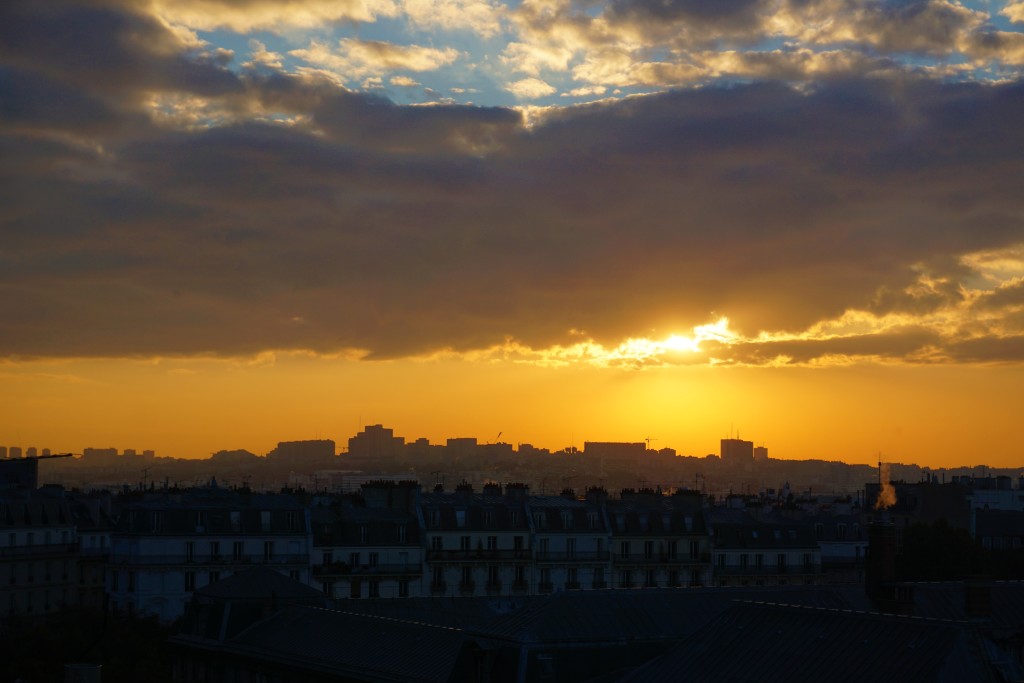Day 161, Paris, France
Paris has always been one of our favorite cities, we’ve been here nearly a dozen times. During our year of travel, we decided to spend three months here and rented an apartment near Sacre Coeur. For the last couple of months, this has been home.
It was a warm Friday night, so we decided to go outside. We were walking by the Love Wall in Abbesses, with its 311 phrases of love in 250 languages, at precisely the moment when the terrorist attacks happened. We arrived back home as the first reports came in. Only later would we reflect on the irony of the timing of where we were.
First things first. It doesn’t matter how old you are, call the parents. Paul’s parents in Canada expressed their concern, asked how the girls are doing, and wanted more details. Next I called my parents. Although I’ve never experienced war or violence first-hand, I was raised by two parents who were permanently changed by both. My Japanese father and German mother experienced the horrors of war, followed by the next worse thing according to my dad, being on the losing side. My dad’s mom and two siblings were wounded and a little brother killed in a public bathhouse bombing in Kagoshima. My mother’s house was bombed west of Berlin, where her family was buried in the basement until they were rescued. Those are just the bombing related stories, there are many more.
Growing up, the communication in my family was largely based on the Japanese model, a few words spoken but most of them not. My Dad also applies this model to phone calls, so they are short. It’s the act of calling that’s significant. He was glad we checked in, sends his love, take good care. Neither of my parents can stomach tragic details, it stirs up too many memories. You’re safe, yes? Good, onward.
Next I called my 92 year-old mom. Here is what was said and what was not said, but understood.
Me: Hi Mom, it’s Christine. (Meaning: Since you don’t have a tv or internet, what do you know?)
Mom: How IS Paris? (I’m hearing things, are you safe?)
Me: We aren’t affected. (We don’t feel we’re in any immediate danger, obviously, or we wouldn’t still be here.)
Mom: They’re telling me it’s bad. (Most people are concerned over stuff I’m unphased by. I want to hear directly from you I should consider being phased.)
Me: It was very bad in a few places around the city. (Crazy horrible stuff happened, but we weren’t there.)
Mom: It’s localized then. (I know you’ll make good decisions to keep you and the girls safe.)
Me: Yes. (Thanks for trusting my judgement.)
Mom: I’m trying to decide what tomatoes to plant next Spring. (Just as I suspected, you’re fine. I don’t want details. Since I’m permanently traumatized from my war experiences, can’t process more bad stuff. Must focus on the things in my life that bring me joy, like gardening.)
Me: We really need to work on that list! (I’m glad you’re finding some happiness.)
We’ve done a fair bit of traveling with our three girls since they were babies. The Paris attacks were not our first brush with human tragedy. In July 2007, we were in London during the 7/7 bombings, out with friends in the attack area only the night before. Natural disasters in poorer developing countries produce other kinds of human tragedies. During our years in Guatemala we experienced earthquakes, flash flooding from hurricanes and tropical storms, and one volcanic eruption. We evacuated our house in the middle of the night when the river swept away neighboring houses and the bridges to town. We saw the devastation and loss for many people who had so little to begin with. Which brings us to Paris.
Parisiens are famous for enjoying everyday life. A well-worn cliche, because it’s true. This cultural tone is one of the characteristics that makes Paris the most visited city in the world. Eating in cafes is more than a lifestyle choice or core value, it’s the very glue of this society–good food, even better wine, unhurried conversation with those you care about, crammed shoulder to shoulder on sidewalks with other Parisiens doing the same. Two days after the attack, Paul and I visited the main memorial site in Place de la Republique. A man being interviewed spoke passionately how the French people will not be bullied to change their values, that going out and enjoying life is who they are, who they will always be. He urged Parisiens to respond to the attacks by continuing their way of life. Another woman chimed in, “Yes, go out, everyone. Show them we are not afraid!” These events, seen by many here, were not only an attack on French people, but because of the venues chosen, an attack on a shared core value. After three days of national mourning, their collective resolve to maintain this part of culture was heard loud and clear, and the cafes filled again. “Je suis en terrasse” I am on the terrace, became the defiant hash tag response to terror. I believe it is here, around the tiny round tables over wine and coffee, shoulder to shoulder with others from the city, where the healing for Parisiens will begin.
Human tragedies change the collective consciousness of a community or country. But, how does it change individuals? The only question I can answer is: How has it changed me? My parents were both immigrants. I’m Caucasian/Asian, so multi-racial and multi-cultural sensitivity is very real for me. I thrive on being connected to the world and its many people and cultures. Being an Axis kid of German and Japanese immigrants on the heels of World War II, I was no stranger to racial ridicule. We were the only somewhat Caucasian family living in an African-American neighborhood. In that context, we felt a kind of prejudice that was unique to our family. In college I continued bridging ethnic divides by starting a Race Relations group. Now as parents, we’ve gone to great lengths to live in countries that give our three Canadian/American girls exposure to many cultures, where they are in the minority. Due to the sensitivities developed in my childhood, I’m one of the least likely people to succumb to racial stereotyping. And yet, the morning after the terrorist attacks, I learned how easily an event like this one can influence thoughts and actions, including mine.
The morning after the attacks there were still a lot of sirens. The French police were in the process of doing 150 smaller raids of suspected terrorist hideouts across the country. Regardless, I needed some cream for my coffee so slipped out to the grocery store a block away. We live on the top floor of a building that has a locked front door. A few steps from the door, I zipped up my coat, and looked up to see Hollywood’s stereotypical terrorist, a Middle-Eastern bearded man, dressed in black with a black hat, pulling at the door handle trying to enter the building. Was this one of the terrorists trying to escape from a police raid, would he pull out a gun and threaten me through the glass or worse? He kept motioning for me to let him in. My other more rational side joined the debate, first of all everyone in Paris wears black, it’s cold, thus the matching hat. He probably lives here and forgot his key. As I opened the door I saw the keypad which reminded me residents know the code, there is no key system. He bent down to gather an awkward stack of big packages. Now the mind-freak is on. Are you kidding me? Explosives cleverly hidden in packages, that’s so old school. He saw me freeze and stare and the packages. I couldn’t move. He assumed I was waiting for a package and asked me which one was mine. Do I look stupid, I don’t want one of your packages. He thanked me again, said he was running late, and smiled. As I walked to the grocery store I was feeling panicked. What had I done? Why did I let him in? Should I go back? What if he harms my family? Maybe he will never get to the top floor but will muck up only floors below. I stopped in the park and gave my head a shake. This is how these events can change who you are, how they fuel divisions and generalizations.
When horrible events happen around the world, we watch them on our flat screens, from our couches. We think we’re not affected personally, yet we absolutely are. We make internal shifts of opinions, judgments that either solidify or redirect our beliefs. These collectively impact our world and how we interact. The day after these events, I was fearful when a friendly, darker skinned bearded man delivered packages, who the day before would have received a friendly greeting, a smile, and a door held open. When events happen, we each have decisions to make. Will we increase or decrease the spaces between us? Will we make the collective climate better or worse by our opinions and actions, what we post on social media, what we say to our friends and family? Are we contributing to hate and division or kindness and love?
Three days after the attacks, Paul and I were standing on the Pont Alexandre III bridge when the city-wide moment of silence began. All the vessels on the Seine blew their horns. A solemn chorus of sustained bass tones swelled unlike anything I’ve ever heard. The forceful wail did more than express the profound sadness of one moment in one city, it was a beckoning call. A call to narrow rather than increase the distance between ourselves and those who are different than we are. A call to make an effort to experience other people in other cultures rather than becoming more entrenched. A call to be brave enough to enter the uncomfortable spaces in conversations, to stand up to a popular tide of generalizations and fear. A call to each of us, how ever we are able, to nudge humanity closer to a world where these events happen less and then someday, not at all.
